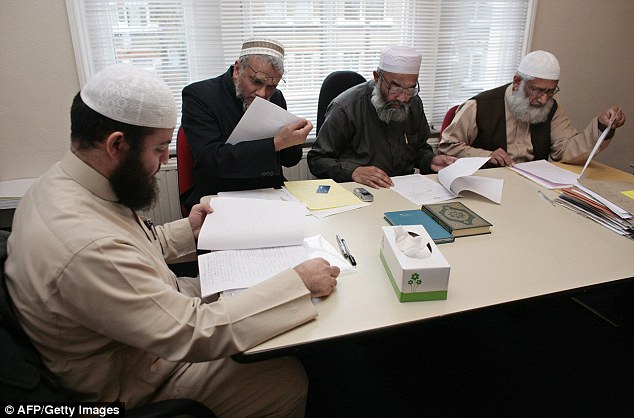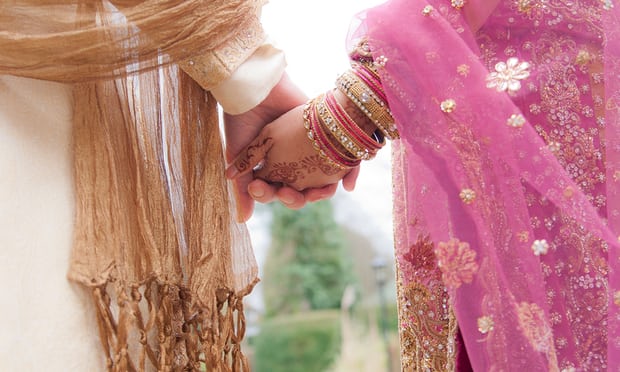LONDON – After 18 months of extensive review, a report released in February by British Home Office called for regulation of Shari`ah councils with a code of conduct, though refusing to recognize Shari`ah marriages under the law.
Outlined by Mona Siddiqui OBE, Chair, the objectives of the report, reviewing the application of Shari`ah law in England and Wales, included the need to “understand why Shari`ah councils exist in the first place and why Muslim men and women, but mainly women, need and use them.”
Advisers to the report included Qari Muhammad Asim, MBE, a well-respected British Muslim working both as a senior lawyer at a global law firm, but also as a senior Imam at a mosque in Leeds. Alongside that of others, his input has helped ensure the report receives the much-needed diverse input it deserves.
Despite repeated calls from some British Muslims for Shari`ah councils as a fundamental right, followed by the criticism of Shari`ah councils from the vocal far-right, the report accurately points out that “There is no clear definition of what constitutes a Shari`ah council, adding that … they tend to be made up of local religious representatives and they have no legal authority under the civil law.”
The perception is that these are men, and occasionally women, who you go to for advice, believing that they have a knowledge of religion and can, therefore, offer insight into matters.
This is a far cry from the coverage of Shari`ah councils in mainstream publications who often refer to them as “courts” with “judges.” As well as being an inaccurate description, these terms inflame the far-right, causing unnecessary friction in society.

The report includes three key recommendations:
First, amendments to Marriage and Divorce laws, to ensure that civil marriages – which are recognized by the law – take place before or at the same time as an Islamic marriage. This is an important and much-needed improvement for British Muslim society as many marry outside of the law, believing that an ‘Islamic marriage,’ or a ‘nikah’ ceremony, is legally binding, when it is not, causing problems both during marital life and when divorces, unfortunately, take place. There is also a suggestion to include a Muslim marriage by nikah into law.
Second, a campaign to address the cultural norm where Muslim women’s rights are often not recognized. Shari`ah courts have often come under fire for not granting women the rights they deserve, an irony given that Islam came to provide women with rights over 1,400 years ago. The campaign should also educate and advise Shari`ah councils that they must not discriminate and that the advice they offer must fit within the best practice of the law.
Third, and perhaps the most controversial, supporting an initiative for councils to regulate themselves. It is controversial because councils have had the ability to self-regulate for many years, but have chosen not to. Support and advice from the government are often seen as interference in local matters when the role of any government is meant to improve the situation and circumstance of all of its citizens. Creating a body that manages both the expectation for the respective councils and the obligations and duties the government has for its citizens, will be a fine line to walk.

Debates
The report itself has stirred debate on the situation of British Muslims within the framework of laws in the UK.
Speaking to The Independent newspaper, Qari Asim said that culturally, some Muslim women felt the need for “religious closure” that is brought by a Shari`ah council.
This stems from the perception that a civil marriage is not sufficient for a couple to wed, though the civil contract fulfills the requirements of a nikah contract. It is, therefore, described as a cultural validation both with the nikah ceremony and in the case of a divorce.
The Express newspaper quoted a spokesman from the Home Office who said, “Shari`ah law has no jurisdiction in the UK and we would not facilitate or endorse regulation, which could not present councils as an alternative to UK laws.”
Given that the vast majority of work at these Shari`ah councils center around divorce, the report is not calling to replace UK law, but to incorporate with the law the flexibility to accommodate the spiritual needs of Muslims, bringing “Islamic marriage in line with Christian and Jewish marriage in the eyes of the law.” (1)
Perhaps the most immediate and effective solution can be found within the report which calls for penalties should a civil marriage not be conducted alongside the Islamic marriage. For all of the flaws attributed to our marriage and divorce laws, they still provide greater protection, rights, and security for men and women who are registered as married.
Until such time as another solution presents itself, British Muslim leaders must encourage and advise men and women to register themselves for a civil marriage. Not doing so is irresponsible. Should a marriage fail, it is often the woman whose rights are not secured; 90% of those using Shari`ah courts are women seeking a divorce. This means that any imam, or religious leader, who does not encourage a civil marriage as well the nikah ceremony is party to the hardship faced by the couple in a divorce.
Not only is this extremely bad practice, holistically, this goes against everything that Islam teaches: the rights of men and women should always be fair.
(1) Report into Sharia Law in the UK, page 5